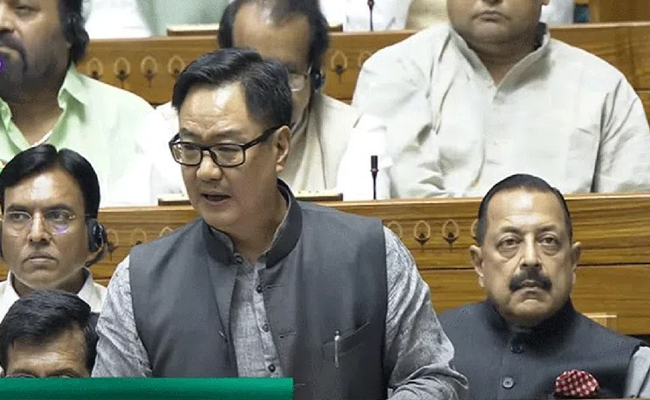
India News

The Waqf Amendment Bill 2025 was introduced in the Lok Sabha, and Union Minister Kiren Rijiju addressed the House on the matter. He clarified that the government is viewing the Waqf issue from a property perspective, rather than a religious one. The minister stated that the Waqf Board holds the largest amount of land in the country after railways and the defense sector. Despite holding vast lands, the Waqf properties have not benefited Muslims over the last 70 years due to vote bank politics, he accused.
Rijiju questioned why Waqf properties, which should be used for the welfare of poor and marginalized Muslims, were not utilized for their benefit. According to 2004 data, there are 4.9 lakh Waqf properties in India, but the revenue generated from these properties amounts to just Rs 163 crore. However, following the amendments in 2013, the income from Waqf properties increased by Rs 3 crore, reaching Rs 166 crore.
The minister pointed out that with such vast properties, the income should be much higher, and emphasized that at least Rs 12,000 crore should be generated from these Waqf properties. He stressed that the purpose of the Waqf Bill is to ensure the efficient use of these properties for the welfare of poor Muslims.
Rijiju also clarified that the Waqf Bill is not about seizing anyone’s property but aims to ensure better management, efficiency, and development of Waqf properties. He compared it to the Citizenship Amendment Bill of 2019, which was criticized by opposition parties, but he assured that no Muslim had lost their rights.
The Waqf Bill is now being referred to as the "Unified Waqf Management, Empowerment, Efficiency, and Development Bill." The minister mentioned that there are currently 8.72 lakh Waqf properties in the country and that if utilized correctly, these properties could significantly benefit Muslims and improve the country’s overall situation. He further stated that significant changes are expected with the new Waqf Bill in the next year, and that poor Muslims are welcoming this change wholeheartedly.
Advertisment